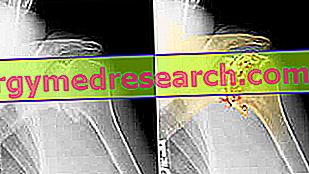Generality
Acetyl-L-Carnitine - also known as Acetylcarnitine or ALC - is a molecule obtained through the esterification of L-Carnitine with an acetyl group.

Acetyl-L-Carnitine - Chemical Structure
Very appreciated for its antioxidant activity and for its good tolerability, Acetyl-L-Carnitine, in the form of supplement, is currently used as an antioxidant in cardiology, neurology and antiaging.
Indications
Why is Acetyl-L-Carnitine used? What is it for?
Acetyl-L-Carnitine is currently used successfully in the prevention and management of different pathological states united by the same oxidative genesis.
The cytoprotective action of Acetyl-L-Carnitine proved to be effective during neurodegenerative diseases such as neuropathies, Alzheimer's disease, Down syndrome and senile dementia.
Acetyl-L-Carnitine has now fully entered the management of fertility disorders, contributing to the improvement of sperm motility in oligoastenospermic patients.
With purely preventive purposes, Acetyl-L-Carnitine would also be effective in preserving the correct cardiac function.
Acetyl-L-Carnitine, especially for its marked antioxidant activity, can be successfully used in anti-aging nutritional strategies and in protection from oxidative damage induced by intense physical activity.
Property and Effectiveness
What benefit has Acetyl-L-Carnitine shown during the studies?
The consolidated utility of Acetyl-L-Carnitine in the world of nutritional supplementation is largely justified by its complex biological role.
In addition to the role of mitochondrial fatty acid transporter, fundamental in supporting the normal process of Beta-Oxidation (function attributed more to its precursor L-Carnitine), Acetyl-L-Carnitine has proved useful in:
- Support the synthesis of important neurotransmitters such as acetylcholine, whose metabolism is seriously compromised in numerous neuro-psychiatric diseases;
- To control the normal cellular turnover, and in particular apoptosis, of the nerve cells, protecting them from the damaging action of the reactive oxygen species;
- Reduce the formation of advanced glycosylation products, known above all for their aging and atheromatous properties;
- Preserve the correct mitochondrial functionality in particularly valuable cells such as myocardiocytes and spermatozoa.
Usefulness observed, not only in the many published experimental studies, but also in some noteworthy clinical trials.
Supplementation with Acetyl-L-Carnitine in patients suffering from Alzheimer's would indeed have been useful in delaying the progression of the disease, controlling some important cognitive functions such as logical intelligence, verbal memory and selective attention. (Brooks JO 3rd et al. Acetyl-L-Carnitine slows decline in young patients with Alzherimer's disease: a reanalysis of a double-blind, placebo-controlled trial using trilinear approach. Int. Psychogertar. 1998; 10: 193-203 )
Interesting works would also have demonstrated the antiaging efficacy of Acetyl-L-Carnitine on cardiovascular function, on metabolic capacities and above all on reproductive potential.
Doses and method of use
How to use Acetyl-L-Carnitine
Classically, in the various studies, the recommended daily dosage of Acetyl-L-Carnitine is 500 - 2000 mg, preferably divided into several assumptions.

Side effects
The most common side effects, observed following the use of Acetyl-L-Carnitine supplements, are: nausea, vomiting, abdominal cramps and diarrhea.
Fortunately more rare, and limited exclusively to certain categories of patients at risk, is the incidence of neuro-psychic disorders such as a sense of agitation and behavioral alterations.
Contraindications
When should Acetyl-L-Carnitine not be used?
The use of Acetyl-L-Carnitine is contraindicated in patients with established hypersensitivity to the active ingredient.
Due to the absence of long-term studies, the use of Acetyl-L-Carnitine is also contraindicated during pregnancy and in the subsequent breastfeeding period.
Pharmacological Interactions
Which drugs or foods can modify the effect of Acetyl-L-Carnitine?
Concomitant use of didanosine, zalcitabine, stavudine, valproic acid, and some antibiotics may compromise the normal pharmacokinetic and pharmacodynamic properties of Acetyl-L-Carnitine.
Precautions for use
What do you need to know before taking Acetyl-L-Carnitine?
Known for the biological effect of Acetyl-L-Carnitine, the use of supplements based on this active ingredient should be closely supervised by the doctor in case of concomitant cardiovascular, neurological and psychiatric diseases.
The same precautions should be taken in case of elderly patients or contextual drug therapy in progress.



